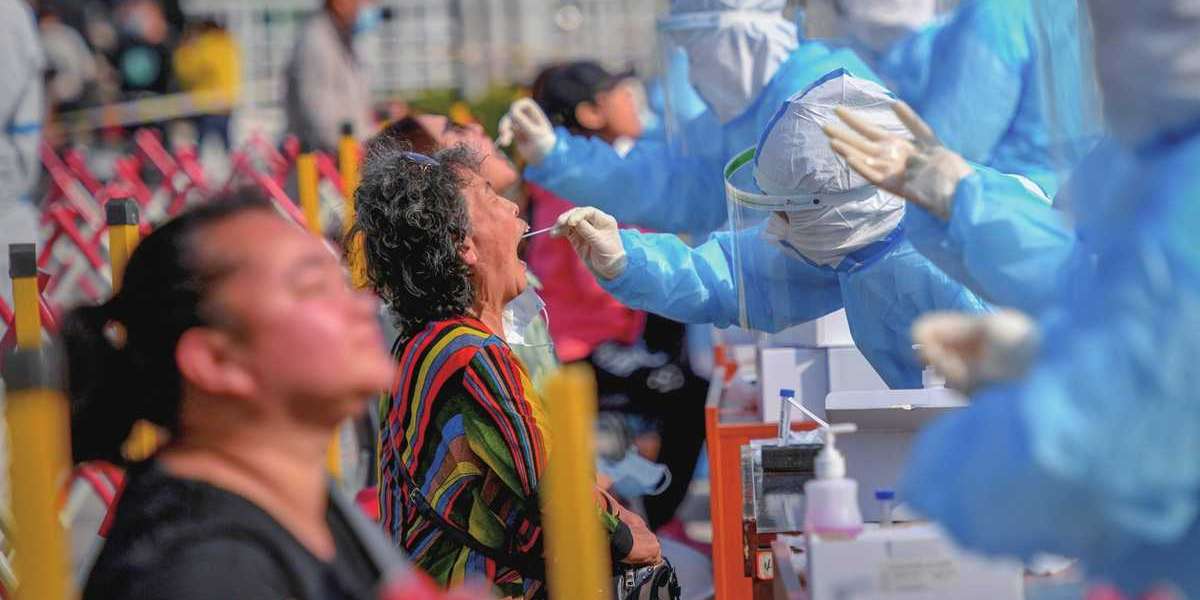Qingdao reported six COVID-19 cases on Tuesday, after six cases on Monday. The new cases on Tuesday were confirmed after being diagnosed as asymptomatic carriers, one of whom is a taxi driver, according to a press conference on Wednesday by Qingdao authorities.
The latest COVID-19 outbreak in Qingdao exposed shortcomings and loopholes in epidemic prevention and control, and the city needs to maintain a "wartime status" to battle the virus, local authorities said on Tuesday evening.
In response, the city vowed to complete city-wide COVID-19 testing of 11 million residents by Friday.
More than 7.5 million nucleic acid test samples have been taken in the tourist city, of which more than 4.06 million have already yielded results. Excluding the 12 cases, no new positive cases have been found.
The National Health Commission has allocated 9,000 ml of convalescing plasma from COVID-19 patients through a fast green channel for the treatment of severe patients in Qingdao, said the press conference on Wednesday.
Wu Zunyou, chief epidemiologist of the Chinese Center for Disease Control and Prevention, said in an interview with Chinese state-owned media CCTV on Tuesday that although the patient zero was not clear, this new outbreak in Qingdao has no direct connection with the National Day holiday in early October, but is linked to imported cases from overseas.
The scale of the outbreak in Qingdao should be lower than in Beijing's Xinfadi market, and Xinjiang, and is mainly concentrated in a hospital, Wu said.
The source of infection is strongly linked to the Qingdao Chest Hospital, said Jiang Fachun from the Qingdao disease prevention and control center, at a press conference on Tuesday.
Jiang's remarks came after local authorities said two of the six cases confirmed on Monday are nursing workers, and two are confined patients at the Qingdao Chest Hospital.
Chinese media said preliminary investigations showed the spread of the novel coronavirus was caused by incomplete disinfection after CT checks.
Yang Zhanqiu, a Wuhan-based virologist, speculated that the outbreak is a typical cross-infection in the hospital.
Yang told the Global Times on Wednesday that the related medical staffers, including the head of the hospital, may have failed to take normal anti-epidemic work seriously, especially when receiving imported patients who tested positive for the coronavirus.
Yang stressed that complete disinfection in such key sites is crucial.
The city's public transport company also launched an investigation to plug any transmission loopholes in the outbreak to ensure public safety after the infected taxi driver's case.
The company disinfected more than 3,800 buses and over 50 bus stations. It would also disinfect 30 new lines of public transport passing by the hospital and other key areas three times a day, with another 78 key lines already listed in the disinfection work.
Qingdao's outbreak unnerved Chinese people in other parts in China, as the tourist city received over 4.47 million passenger trips during the National Day holiday.
As of Tuesday, Beijing confirmed five close contacts and 15 secondary close contacts related to COVID-19 cases in Qingdao. The 20 people have tested negative for COVID-19, and are in isolation.
Beijing also discouraged non-essential trips to Beijing from Qingdao.
admin
354 블로그 게시물



![[Giveaway] Free Onedrive 5TB](https://nilinknet.com/upload/photos/2021/06/p56e9lbkkoJWbCPDfQnQ_19_ba70a2bc17ee5a51ef1dfdc965d39453_image.jpg)